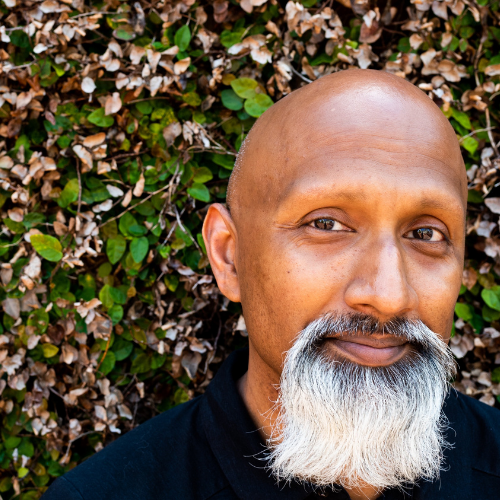
Mukesh Patel, M.D.
1. What is/are your role(s) at The Heersink School of Medicine?
I am an associate professor of Medicine in the Division of Infectious Diseases and also the section chief of Infectious Diseases at the Birmingham VA Medical Center. I am a course do-director for two undergraduate medical courses - Fundamentals Block 5 (Microbiology), and Pulmonary Medicine. In addition to those roles, I am also the director of Longitudinal Microbiology Curriculum - a long title that translates into I try to ensure clinical microbiology is sufficiently taught throughout the relevant coursework in the first two years of medical school. My education roles in our school mean that you will see me frequently during your first two years. Later, I may also work with some of you as you rotate through Internal Medicine and/or Infectious Diseases during your clinical training.
2. Tell me about your research interests.
I don't formally do research anymore. I previously did research related to clinical Staphylococcus aureus infections, particularly molecular epidemiology of new strains of MRSA.
3. What is your favorite part of working with MS1s?
Medical students want to learn medicine. They don't always see how the nuts and bolts of the science gobbledygook relates to patient care. My job is to find that connection and highlight it. And when students start to see those connections between the classroom and future real patients, they get excited. That's the reward for me. In addition, students ask questions, sometimes hard questions that force me to learn some new stuff, which I love to have happen. Teaching has made me a better clinician because of the students.
4. Why did you choose to go into Infectious Diseases?
It's hard to explain to non-ID people why people choose ID as a specialty. It's kind of like why somebody who likes apple pie likes apple pie the most as opposed to all the other pies out there. ID is my apple pie - to the nuanced taster, ID has a little of everything in medicine and opportunities to work in diverse ways. And while I didn't think of this when I chose the specialty, I realized that ID is one of the areas of medicine where I can help patients who are often ignored or marginalized by mainstream medicine. That's a realization that has been very rewarding. The distribution of healthcare in our communities is far from equitable and as an individual physician, you can impact the lives of people who others have passed over. This is often the case in infectious diseases in my experience.
5. If you could give any advice to the incoming MS1s, what would it be?
You will be pushed to learn more than you've ever learned and faster than you thought was possible. It may leave you with a sour taste for reading and learning. Don't let it. Find a way to have a passion for learning and savor it. Your medical education doesn't end when you graduate medical school or finish a residency; you are committing to a career that absolutely requires you to continue to learn. The pace will slow as you move through the coming years, but in order to provide the best care for your patients, you will need to become a lifelong student. Embrace the joy for learning and its potential to help your patients as well as give you energy and excitement in your day-to-day work.
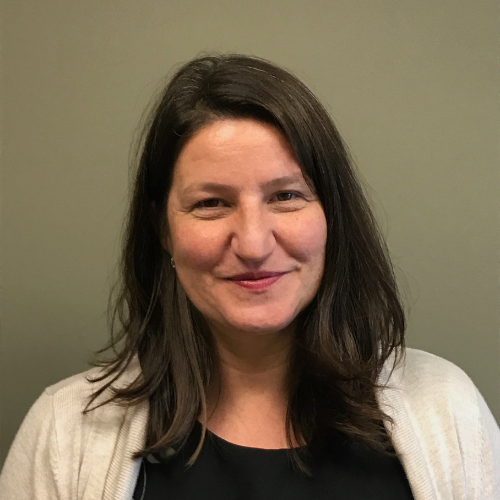
Laura Fraser, Ph.D.
1. What is/are your role(s) at The Heersink School of Medicine?
I wear a few hats, but one of my primary roles at our school is director for the Fundamentals of Medicine course, which is a 17-week integrated basic science course that spans the first semester of medical school. While the course involves numerous teaching faculty, I interact with MS1s on a daily basis and am one of the go-to people for student questions, concerns, and academic matters. I also teach cell biology and histology content in Fundamentals and the organ modules, so I interact with students throughout the preclinical curriculum. Additionally, I am also the director for the UAB Anatomical Donor Program and am heavily involved in our Admissions committee.
2. Tell me about your research interests.
I am a cell biologist by training but for the last 10-plus years my time and efforts have been spent in the realm of medical education. My interests are teaching foundational sciences and applying knowledge to clinical medicine. I am also very interested and concerned with medical student wellness. In my role as Fundamentals course director, I see early on how medical school can take a toll on mental, physical, and emotional well-being. Along with a few colleagues, I developed a Mind-Body Medicine course to support students in their efforts to create healthy wellness habits while in school, in hopes that they can maintain them throughout their careers, for themselves and their future patients.
3. What is your favorite part of working with MS1s?
Their energy, optimism and enthusiasm! They start with such an eagerness to learn and embrace all that school has to offer, which is quite refreshing. Also because I see them first thing in their MS1 year, I get to know many of them early on and have the privilege of watching them grow and develop as they find their niche and a specialty that is most suited for them.
4. If you could give any advice to the incoming MS1s, what would it be?
Remember that you are here for a unique purpose, selected by the Admissions committee for specific reasons. Your journey is yours alone, and you are not in competition with anyone else. Continue to work hard and be true to yourself, and you will achieve more than you can imagine. And always, hold on tightly to those things that ground you (family, friends, exercise, hobbies, artistic pursuits, etc) as these are the things that you can draw on when you feel weary along the way and can help you maintain a healthy balance in life.
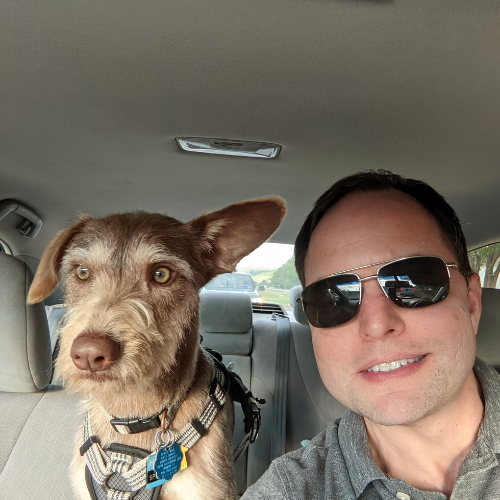
Jason Noah, M.Ed.
1. What is/are your role(s) at The Heersink School of Medicine?
I work in Medical Student Services (MSS), which is the student affairs office for medical students. My primary scope is advising the Student Senate, Best Medicine Show, and other student groups, working with the learning community (LC) student reps, and helping plan the milestone events for medical school (New Student Orientation, White Coat Ceremony, Match Day, Commencement, etc.) Because Kaitlin Higginbotham and I work closely with students in more informal settings, my office tends to be where students come with random questions about how medical school works or who to contact about a specific issue.
2. What is your favorite part of working with MS1s?
Each year, when the first-year students arrive, we have an influx of fresh energy and enthusiasm in Volker Hall. New Student Orientation is basically the same content each year, but it always feels different, because of the people who are our students.
3. If you could give any advice to the incoming MS1s, what would it be?
Don't try to figure out everything on the first day. Medical school takes some getting used to. Spend the first few weeks focused on building relationships with people in your class. Step 1, your clinical schedule, CK, and residency match will all come later, but you'll never get another chance to connect with people in the same way as you do in the beginning. (Also, asking about study resources and Step prep on the first day is kinda intense when everyone's just trying to figure out where the restrooms are. Relax and pace yourself!)
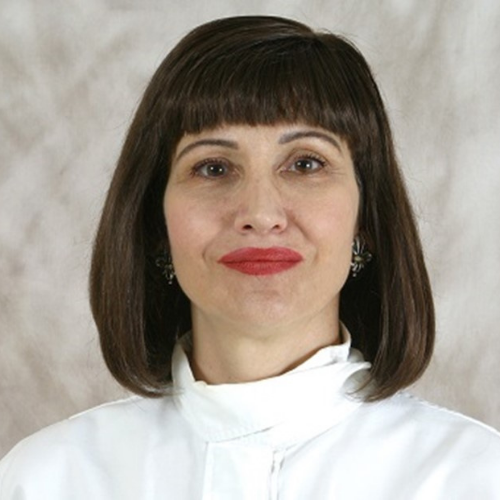
Teresa Wilborn, Pharm.D., Ph.D.
1. What is/are your role(s) at The Heersink School of Medicine?
I plan the pharmacology content for the preclinical curriculum. My first interaction with the MS1 students is in the Fundamentals course where we discuss the basic mechanisms by which drugs work.
2. Tell me about your research interests.
My research interests focus on pharmacology curriculum development and blended learning methods.
3. What is your favorite part of working with MS1s?
I greatly enjoy working with the MS1 students to set a pharmacology foundation. I want to help them develop an enthusiasm for pharmacology that will persist as new information and drug treatments become available throughout their professional lives. At the end of the MS2 year, I am always pleased to see what we've achieved together.
4. What is your favorite part of being a pharmacologist?
My favorite part of being a pharmacologist is feeling like what I teach will be used by physicians, researchers and other health professionals to help patients in countless ways.
5. If you could give any advice to the incoming MS1s, what would it be?
Stay with it! There's a lot to learn but it is very doable. Don't be hesitant to seek help if needed. You are not alone and there are many people at UAB who want to see you succeed.
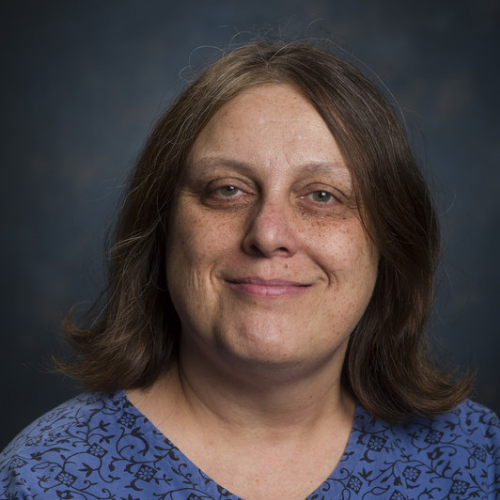
Cathy Fuller, Ph.D.
1. What is/are your role(s) at The Heersink School of Medicine?
Module director GI Module; lecturer Block 3 Fundamentals
2. Tell me about your research interests.
Epithelial transport; sodium and chloride channels; CF
3. What is your favorite part of working with MS1s?
Working with students until they understand a concept.
4. What is your favorite part of being a researcher?
I loved doing research - finding out something that no-one else knows or predicting an outcome and seeing it play out in the experimental results.
5. If you could give any advice to the incoming MS1s, what would it be?
If you understand the concepts, the facts will follow! In other words, focus less on memorizing facts and more on understanding and applying what you know to solve problems.